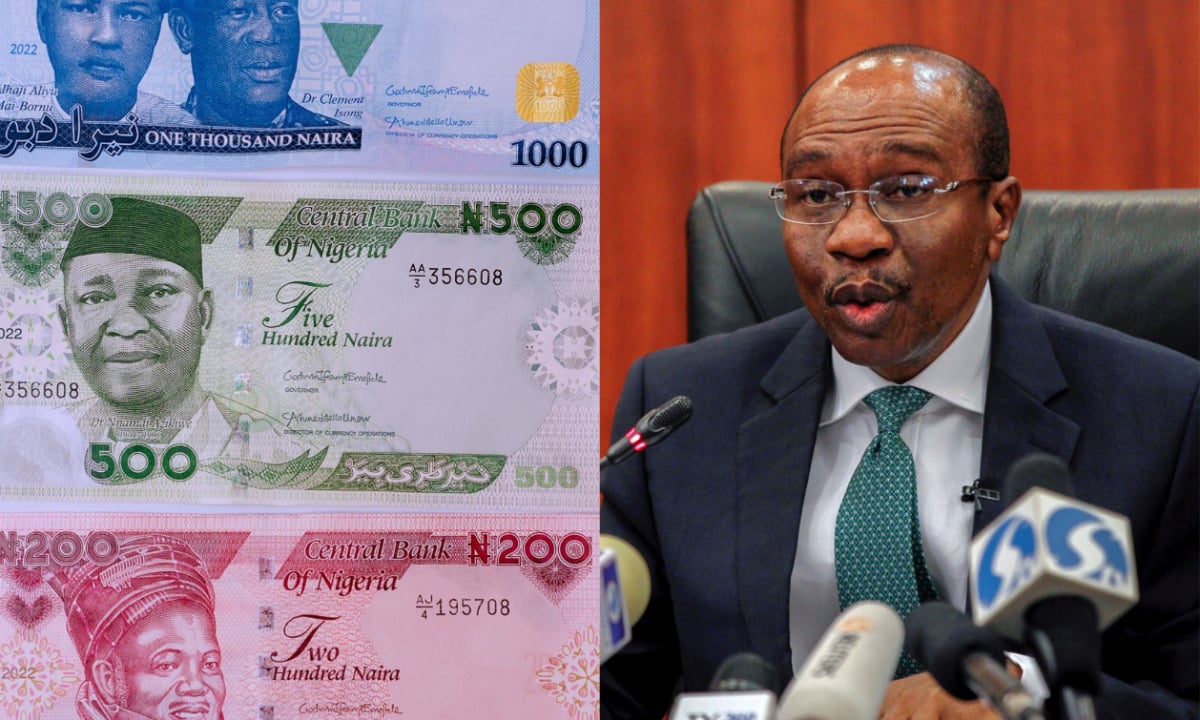Some federal universities are currently considering raising tuition fees for students amidst cries for increased funding of the institutions, investigations have revealed.
Our correspondents report that three federal universities – University of Nigeria, Nsukka; Federal University of Technology, Owerri, and Federal University of Health Sciences, Azare, Bauchi State, have already announced up to 100 per cent hike in fees following the suspension of the recent strike by the Academic Staff Union of Universities.
Further investigations by Saturday PUNCH revealed that more federal universities, including Federal University, Oye-Ekiti, University of Maiduguri and the Michael Okpara University of Agriculture, Umudike, were also set to increase tuition fees.
Though the management of the three schools had yet to make the decisions public, an academic staff member at UNIMAID noted that the fees paid by students could no longer sustain the university, hence the need for the increment.
“This is one of the reasons ASUU is fighting the government. If the money won’t come from the government, the money has to come from somewhere else. The management is thinking of hiking the fees. It is the only way out,” the lecturer stated.
At the Michael Okpara University of Agriculture, Umudike, one of our correspondents learnt that the school was planning to increase school fees to N80,000 for old students.
Sources at FUOYE disclosed that there were contemplations to increase the school fees even though the management had not made the plans public.
Varsities hike fees
Findings by our correspondents revealed that at the UNN management had hiked the fees by over 100 percent.
In the schedule of the new school fees obtained by Saturday PUNCH, students in the faculties of Social Sciences, Education, Agriculture, Arts, Environmental Sciences, Engineering and Physical Sciences would pay N83,500 as against the previous N44,000 per session, while new students would have to pay N130,000 as against N76,000 previously.
The schedule also revealed that students in the faculties of Veterinary Medicine, Law, Medicine, Dentistry and Health Sciences would begin to pay N92,500 per session as against the former tuition fees of N50,000.
A member of the Senate of the institution, who spoke to one of our correspondents in confidence, noted that the school was suffering from paucity of funds.
“The money received from the government is not enough to take care of the needs of the university. The Senate of the university agreed to the hike and that is why it is on the website of the school. It is not the fault of the school’s management,” the source explained.
At the Federal University of Health Sciences, Azare in Bauchi State, a memo issued by the Registrar, A. A. Adamu on behalf of the management of the institution revealed that first year students for Medicine and Surgery, Dentistry, Nursing, Radiography, Nutrition and Dietetics would now pay over N300,000 as tuition fees.
According to the memo, first year students of Medicine and Dentistry will pay N351,000 per session, while those of Nursing, Radiography, Nutrition and Dietetics are expected to pay N331,000 per session.
The school, however, noted that the students were free to pay in two instalments of 60 per cent upfront for the first semester and 40 per cent for the second semester.
Findings by our correspondents also revealed that FUTO was set to announce a hike in fees.
The Public Relations Officer of the Students Representatives Council of the school, Bright Onyekachukwu, however, disclosed that talks were ongoing between the management of the institution and the SRC.
The university’s tuition fee, which was around N39,300 for old students, is set to be increased to between N72,000 and N75,000.
“We’re doing everything possible to make sure that we solicit support on behalf of FUTO students as the school increases her fees to between N72, 000 and N75,000, Onyekachukwu said,
Saturday PUNCH reports that the announcement of fee hike by the three institutions follows allegation by the National Association of Nigerian Students that the Federal Government is planning to hike tuition fees for tertiary education students across the country.
NANS had in August in the midst of the strike by ASUU alleged that the Federal Government failed to meet some of the demands of the union because of plans to hike tuition fees.
ASUU had embarked on a strike in February amidst accusations that the Federal Government was not interested in funding university education in the country. The union also accused the government of failing to release money for the revitalisation of universities.
The ASUU President, Prof Emmanuel Osodeke, in a recent statement said the Federal Government was gradually disengaging itself from funding public universities across the country.
Osodeke also noted that the union was not in support of the proposed introduction of education loan, saying it would fail.
He stated, “NEC observed with concern the systematic disengagement of the government from funding of public universities through the proposed introduction of education loan, which has proven to be a monumental failure in our nation and some other countries where it was introduced.
“We find it troubling that the proponents of the policy are so eager to foist it down the throat of Nigerians when they have done more to push the working people of this country into poverty through sheer incompetence in handling the economic fortunes of our nation.”
‘Varsities at liberty’
The Chairman, Committee of Vice-Chancellors, Samuel Edoumiekmo, said that the body did not discuss the issue of increment in tuition fees as there was no unanimous agreement to increase fees.
He, however, stressed that universities had the autonomy to increase their tuition fees without informing the committee, adding that as long as the Senate of the individual institutions approved such an increase, it would take effect.
Edoumiekmo said, “That discussion didn’t take place; there was nothing like that at the level of the Committee of Vice-Chancellors. However, every university has the powers to decide whatever; the only thing they will do is that they will get clearance from the ministry, but every university council can decide on increasing the school fees.
“Even as we speak, the fees of some federal universities are not the same. Those for specialised institutions like the medical universities are not the same with all these other general institutions. But there was no collective discussion to increase school fees. The committee of VCs did not discuss that.”
Osodeke could not be immediately reached for comments.
However, a member of the National Executive Council of the union and Chairman of its Federal University of Technology, Minna, branch, Prof Gbolahan Bolarin, said, “Yes, I am aware and I think more will come since the Federal Government is insisting on not having capacity to finance education and university administrators must find a way to keep the system going.”
NANS kicks
Meanwhile, the National Association of Nigerian Students has kicked against the hike in tuition fees. Speaking in an interview with one of our correspondents, the Coordinator, NANS South-West, Adegboye Olatunji, said, “Most schools are already hiking tuition fees despite poor standard of education, poor funding, lack of amenities, poor laboratories, and poor incentives and salaries for our lecturers, which in turn affect the students.”
Speaking on the recent strike by ASUU, the NANS coordinator said, “Well, I believe that we haven’t achieved anything and we should be preparing for another strike in months or years to come as we have been experiencing before and it will still be based on the current agitation as the demands of the lecturers have not been met by the Federal Government.”
NANS emergency meeting
Meanwhile, the National Executive Council of NANS is set to meet today (Saturday) to discuss the issue of tuition fee increment.
The National Secretary-General, NANS, Usman Kankia, in a circular obtained by one of our correspondents, said the meeting would hold at the Federal College of Education, Zuba, Abuja.
The circular titled, ‘Invitation for Emergency Joint Session Meeting’ was dated December 7, 2022.
The meeting will involve coordinators of all the zones in the country as well as state and national executive members and other stakeholders.
Also to be discussed, according to the agenda, is the new withdrawal limit set by the Central Bank of Nigeria.
Other issues to be discussed include the scarcity of Premium Motor Spirits (also known as petrol) and the National Health Insurance Scheme, among others.
Speaking to Saturday PUNCH, the National Vice-President (External Affairs) of NANS, Akinteye Babatunde-Afeez, confirmed the meeting, noting that the association would not accept any form of fee increment by any university.
He said members of NANS would shut down the entire country if the Federal Government did not intervene in the matter urgently.
Babatunde-Afeez stated, “It is barbaric and wicked for any university to come up at this point in time with the economic atmosphere to say it wants to increase school fees. It is crazy. We at the last level of the ladder are not going to take it.
“Every school that has added a dime will be shut down by Nigerian students. They cannot commercialise education. It is not for profit-making. These institutions are government-owned and they are the only hope of the masses, so we will not accept it.”
Parents’ body kicks
The National President of the Parent-Teacher Association of Nigeria, Haruna Danjuma, said parents would not be able to afford the hiked tuition fees imposed on them by some tertiary institutions.
He urged the universities to be considerate to the parents, noting that the economy was not favourable for such a decision.
Blaming the Federal Government, Danjuma said, “This fee hike originated from the face-off between the Academic Staff Union of Universities and the Federal Government. The unavailability of teaching and lab materials in government institutions, especially the ones owned by the Federal Government, and the non-payment of the lecturers’ salaries over the period of seven months will compound this issue.
“The court has intervened and the lectures have obeyed its ruling, but nothing is being done. Now, the vice-chancellors and other university chiefs do not have any other option but to pounce on us parents to request extra money in the name of increment.
“It is not going to work. This is because the pressure is already too much on us. Where do they expect us to raise money to go and pay for these high school fees?”
He also urged the government to caution the universities, noting that the hike in fees might lead to an increase in the number of dropouts from the institutions.
The PTA boss added, “The government should do the needful by calling the attention of the university authorities to address the matter. We are managing and squeezing our pockets to be able to afford the current fees. Some of the self-sponsored students will drop out. It has not been easy sponsoring our children; so, the government must intervene, else we will know that they don’t have us at heart.
“The universities cannot just do what they feel like doing without the consent of the government, which owns the institutions. We call on the government, as a matter of urgency, to do the needful.
“This will make most of our children drop out and join crime. Insecurity will increase. Most of our children will become frustrated and pushed into negative vices. The government needs to help us.”
‘Education isn’t cheap’
Speaking in an interview with one of our correspondents, the Programme Director, Reform Education Nigeria, Ruth Oluwatoyin, noted that the federal universities had the right to increase school fees.
She stated, “The universities cannot sustain themselves based on what they get from the government and the school fees being paid. In fact, students in federal universities don’t pay school fees. In some private universities, Law costs about N1m per session, while some federal universities charge less than N100,000.
“The universities can’t be sustained that way. Tertiary education is not cheap anywhere in the world and that is why some of us are happy about the introduction of the student loan bill by the National Assembly; this will ease education financing. Universities will be able to charge as much as they want.”
An education expert, Dr Dipo Awojide, said, “The model for funding the higher education sector that we have used since the 1980s has largely failed. It has not been sustainable and this is one of the reasons the Academic Staff Union of Universities has repeatedly gone on strike in the last 40 years.
“We need to do things differently going forward. Full autonomy for all our federal universities should be considered. Investments in real estate, grants from the government, philanthropy from individuals and industry partners, endowment from alumni, research grants and tuition fees from students are different revenue generating sources that can be considered by all federal universities in Nigeria.”
‘Stop frustrating lecturers’
A former President of NANS, Danielson Akpan, called on the Federal Government to stop frustrating members of ASUU through the non-payment of salaries.
Akpan told Saturday PUNCH, “The Federal Government can also make sure it resolves this crisis without necessarily having to pay half salaries to ASUU members or owe them as punishment since the matter is pending in court.
“Regardless of that, they have complied by also going back to the classroom; so, the Federal Government should tone down on efforts aimed at frustrating the lecturers.”
He also urged the lecturers “to know that their job is service to the nation. They must be ready to tone down on activism. They are not doing it only for the payment, but also for the betterment of the country.”
Akpan stated that the Federal Government and ASUU must put students at the core of their interests to avoid another strike in the university system.
He noted that ASUU’s interest and that of the Federal Government must align for the benefit of the students and the entire university system.






2 Comments